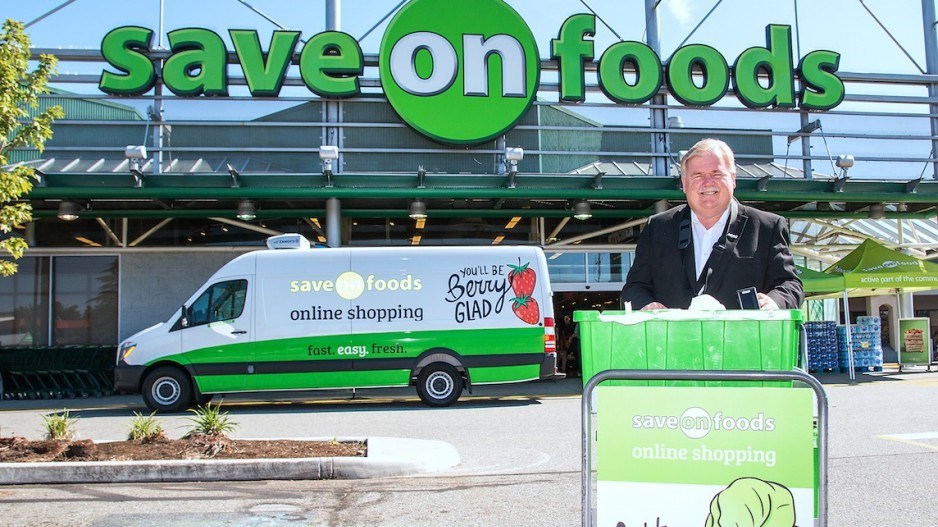Virtual-assistant home speaker systems, such as the Amazon Echo and Google Home, are prompting analysts and retailers to envision a time not too far in the future when customers will commonly tell their devices to add paper towels, detergent or other items onto their shopping lists.
Voicebot.ai’s 2019 U.S. Smart Speaker Consumer Adoption Report counted 66.5 million such virtual-assistant devices in the U.S. in 2018 – more than 40% more than the year before.
Amazon.com Inc.’s (Nasdaq:AMZN) devices lead the way with 61% market share, and Retail Plus GmbH managing partner Chris Bücker told Business in Vancouver that he expects Amazon’s dominance in e-commerce and virtual assistants to grow, flashing a danger sign for brand owners and retailers.
Amazon’s virtual-assistant personality, Alexa, “is going to decide what items are proposed to you, and that’s quite dangerous, of course, from the point of view of a normal retailer,” said Bücker, who is based in Switzerland and was in Vancouver in June to attend the Consumer Goods Forum’s global summit.
His company specializes in taking retailing and manufacturing executives on “digitization tours” of regions to introduce them to counterparts at companies that will help them upgrade technology.
He also chairs the International TCG Retail Summit, which is one of the world’s premier gatherings for technical consumer goods executives.
Bücker foresees a day when a good chunk of Amazon’s business is selling a range of its own generic, white-label products as the default choice for voice-commerce orders made on its virtual-assistant devices.
“Within five to 10 years, there will be this change,” he said. “It may not be up to 10% [of grocery sales] but it will come, especially for the young people. Convenience is king for them.”
Amazon is not the only global retail behemoth active in Vancouver.
The world’s largest retailer, Walmart Inc. (NYSE:WMT), partnered with Vancouver’s Food-X Urban Delivery last year to use part of a 74,000-square-foot warehouse in Burnaby to store food and to deliver grocery orders. It is also spending $175 million to build a 300,000-square-foot warehouse in Surrey. That is upping the increasingly competitive market for online grocery delivery in Metro Vancouver – as BIV explored in this story last year.
The retail giant then, in April, partnered with Google parent Alphabet Inc. (Nasdaq:GOOGL) to launch what it calls Walmart Voice Order.
The concept is for Google Home owners to tell their devices, for example, “OK, Google, talk to Walmart, and add laundry detergent to my cart.”
Retail Insider Media owner and analyst Craig Patterson said the Google-Walmart partnership is momentous.
“This changes everything,” he said. “If Walmart is doing it, everybody has got to be doing it, and they have got to be doing it now – developing the technology.”
He said there could be a “bloodbath” in the Canadian grocery sector as competition ratchets up and players such as Empire Co.’s (TSX:EMP.A) Sobeys Inc. subsidiary, Loblaw Cos. Ltd. (TSX:L) and Overwaitea Food Group vie for market share.
Grocers who do not evolve to offer voice commerce could fade into irrelevance, Patterson warned.
Overwaitea Food Group president Darrell Jones did not sound worried about falling behind even though his company does not offer customers a voice-commerce option.
Jones’ company is a branch of the Jim Pattison Group and is known mostly for its Save-On-Foods banner, which has had e-commerce delivery for about three and a half years and has expanded that segment of the business by 30% to 40% in each of those years, he said.
Company-wide, e-commerce orders represent less than 10% of sales, but in some stores e-commerce orders amount to more than that, Jones told BIV.
“We are very, very customer-centric,” Jones said. “We’re here to deliver whatever the customer wants. So if [voice commerce is] what they want and desire, we’ll have it.”
He added that the company is upgrading its technology to ensure that at some point in the future it will be able to offer voice commerce.
“[Voice commerce] is a future thing that customers are going to want,” Jones said. “I’m not sure that it’s really mainstream today. In my view a lot of this is sometimes … hype for the stock price. It’s hype. I’m not suggesting that it’s not real and that it’s not going to happen, because it is. Whether it is mainstream for today, it’s hard to say. In three to five years? Yeah.” •




